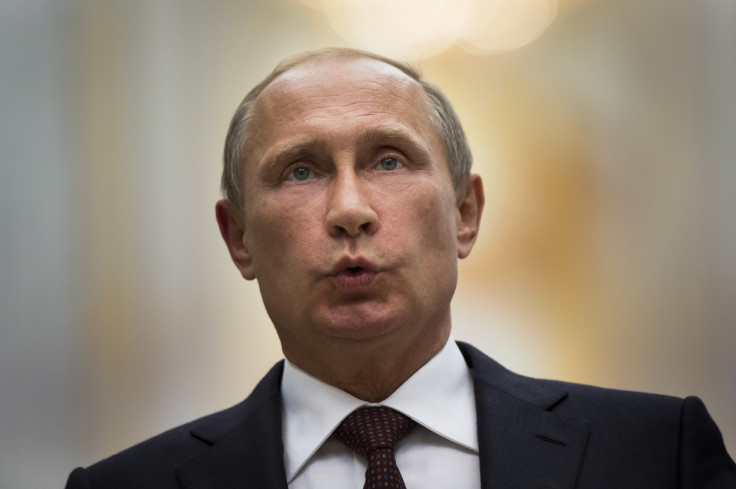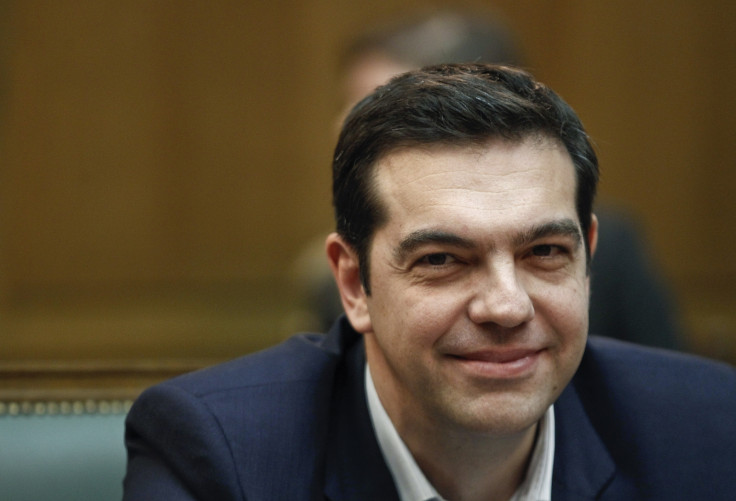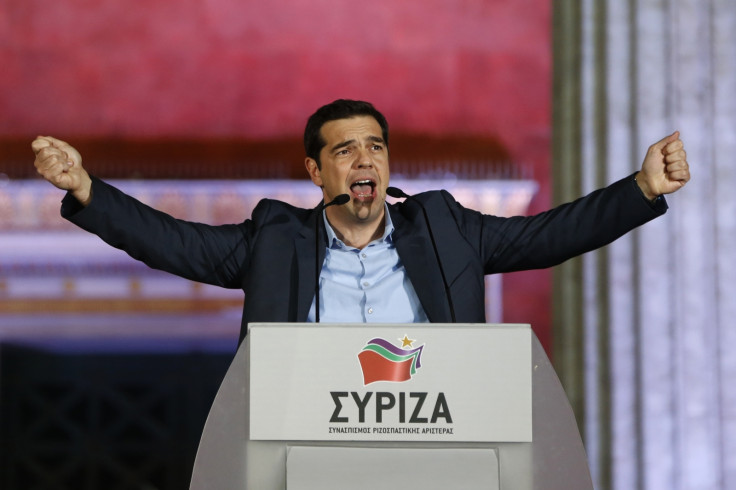Syriza and the Kremlin: Alexis Tsipras and Vladimir Putin are new best friends

Syriza made plenty of enemies as it fought to win the Greek election on a hard-left platform, alienating other European powers with threats to default on the loans that rescued the country from bankruptcy.
But it is also making friends - and the first well-wishers knocking on the door of Syriza leader and new Greek prime minister, Alexis Tsipras, came from the Kremlin.
Andrei Maslov, the Russian envoy to Greece, handed Tsipras a letter of congratulations from President Vladimir Putin in which he urged closer relations between the two men's countries.
Putin will be happy to have an ally in the European Union (EU) amid the sanctions war between the West and Russia over Ukraine.
In a long statement posted on the Syriza website in February 2014, on the subject of the Ukraine crisis, not once was Russia mentioned. Instead, the blame for the instability – sparked after Russia annexed Crimea – was placed at the door of the West.
"Now, [the] EU and Washington encourage and aim at the destabilisation of the country and at the same time they support directly and indirectly the neo-Nazi and extremist groups, which are today negotiating powerful positions in the so-called "national unity government," said the statement.
"The latest developments in Ukraine open up the way for pillaging from imperialist forces and greedy financial interest, while the geopolitical and geo-strategic contradictions pose huge dangers for peace in the heart of Europe."

Tsipras then went on a two-day trip to Moscow in May 2014 where he met Russian officials and dignitaries, though he had no face-to-face meeting with Putin.
While in Moscow, he was critical of the interim Ukrainian government because of fascist elements within it. Ukraine is fighting Russian-backed separatists in the east after Putin annexed Crimea when the Kremlin-allied Viktor Yanukovich was ousted as president during protests in Kiev.
Protesters were unhappy that Yanukovich had eschewed closer ties with the EU for integration with Russia under Putin's project, the Eurasian Economic Union.
Tsipras' position goes against the Western policy, led by the US and EU, of supporting the interim Kiev government as it tries to wrest back control of its country in a violent civil war with the separatists, who have been covertly supplied with Russian fighters and military equipment.
"We believe the Ukrainian people should be sovereign and should decide with a democratic manner and with referendums on its future," Tsipras told the Athens News Agency.
He added: "It is a regression for us to see fascism and the neo-Nazis entering European governments again and for this to be accepted by the EU."
Again, there was no word on Russian aggression from Syriza.
As part of his cosying up to the Kremlin, Tsipras has attacked the EU's financial sanctions against Russia over its actions in Ukraine.
A statement prepared by the EU just before Syriza came to power condemns Russia over Ukraine and urges the Kremlin to change its stance on the separatists. It warned of further actions – read: sanctions – if Russia does not.
The new Syriza government – packed with Marxist academics – was quick to lash out at the EU statement, saying that Greece as a member state does not give its consent for it to have been written. Costas Isychos, a Syriza foreign affairs spokesman, called the Western sanctions "neo-colonial bulimia".
Syriza is traditionally leftist in its foreign policy. When the French committed troops to upholding peace in the Central African Republic, where the United Nations said there had been a "total breakdown of law and order" as Christians and Muslims fought, Syriza called it "imperialistic".
In this vein, it has common ground with Russia, which accuses the West of imperialism and advocates at the UN a position of not interfering in the internal affairs of other countries, no matter what is happening within the borders.

It is this opposition within the UN by Russia and its ally China that has blockaded military intervention in Syria, where President Bashar al-Assad has been accused of using chemical weapons against civilians, and Islamic fundamentalists have usurped control of the rebellion against him.
There is also self-interest as well as ideological reasoning for Syriza's softer approach to Russia. The Greek economy does a lot of business with Russia. Or did do a lot of business with Russia – the sanctions have killed off much of the trade.
Before then, Russia was Greece's largest trading partner by individual state, accounting for 14% of the total value. Germany was second place at 10%. In 2013, Russian business was worth €9.3bn (£7bn, $10.5bn) to the struggling Greek economy, mostly for the energy, agriculture and tourism sectors.
And the two countries have strong cultural bonds because of the dominance of the orthodox Christian church in both, as well as their shared history: Russia backed Greece in its war of independence against the Ottoman Empire in the mid-nineteenth century.
Syriza may have disappointed Russia in one area, though. It had a policy of leaving Nato and closing all foreign military bases – including one belonging to the US on Crete – if it ever got into power. Syriza did not win an outright majority in the election, falling just short.
To secure a coalition with the Independent Greeks, a right-leaning anti-austerity faction in the Hellenic Parliament, Syriza had to compromise on this. But at least, as far as Russia is concerned, its heart was in the right place.
Tsipras is a lifetime man of the left. He was a young communist and, once the Soviet Union collapsed, he worked his way through other left-wing movements until his modern moment came with the collapse of the Greek economy at the beginnings of the eurozone crisis.
He has few allies in power in Europe. Instead, Tsipras must look for solidarity outside of the EU. Russia is the first to have reached out. Perhaps if it doesn't work out with the EU, Putin will let Tsipras take Greece into the Eurasian Economic Union instead.
© Copyright IBTimes 2025. All rights reserved.




















